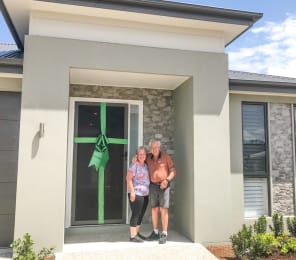The Managing Director of one of Queensland’s largest home care providers, the Queensland-based Envigor, Nick speaks from in-the-field experience.
He has long been outspoken on the issues affecting the sector – in particular, the role of the Government and its failure to consult with providers.
A LASA board member and previously the CEO of private aged care operator Seasons Aged Care, he was deeply involved in the development of the Seasons business model and its expansion to six sites in Queensland’s southeast over around 10 years.
At the same time, he led his home care operator Envigor – established in 2009 – and its 400 staff who deliver on site 24/7 services into all of Seasons’ homes, up to 25 retirement villages across Queensland as well as into the community to 1,000 clients.
- Government has treated providers with disdain for years
- More money needed to fund higher standards and pay staff
- Little of the Government’s $445 million aged care COVID-19 stimulus going to providers
- Aged care retention bonus is “almost a disincentive”, providing just $60 a fortnight compared to $1,500 for JobKeeper
- COVID-19 adding $600K to Envigor’s operating costs
- Extra funding should be split between consumers and providers, not allocated to packages
- The industry is poor: Royal Commission should recognise providers are not just “whinging”
- Enforced isolation of older people will lead to new demand for home care
- Retirement villages may become more attractive post-pandemic, but will need to change the way they offer services
- Royal Commission and industry peaks need to consider what recommendations they will make in this new world
- Family home must be included in means test
- Home care recipients should be able to tap into equity in their home
Government treating providers with disdain for years
Nick argues,
The Government has been treating providers with disdain for well over a decade. They say they put funding in but what use has it been – because they don’t actually listen.
“If you can’t actually fund higher standards, you can’t have them,” he said pointedly. “We all agree that staff should be paid more but there is not enough money to pay them more.”
The MD says it is “incredibly frustrating” to see $445 million in COVID-19 stimulus dedicated to aged care, but little going to providers – for example, $12.3 million will be used to enhance MyAgedCare.
Staff bonus just $60 a fortnight – JobKeeper $1,500
Case in point: he is critical of the new staff retention bonus being provided by the Government, which he says amounts to $60 a fortnight for staff.
“It’s almost a disincentive for people to remain in the industry,” he said.
Nick says if the Government has actually consulted with the industry, providers would have advised a different approach.
“These are some people of the lowest paid in the industry,” he added, pointing out that the Government’s JobKeeper and JobSeeker payments offer $1,500 and $1,100 respectively per fortnight.
$600K COVID-19 increase in operating costs
Envigor provides 500 occasions of care to its clients daily. Nick estimates that COVID-19 has added $600,000 to their annual operating costs for those care services.
“We’re not going to get that through a CDC package for costs incurred by business in responding to COVID-19,” he said.
He argues that if there is extra funding for home care providers and it is simply allocated to a client’s package, this funding will simply flow into the client’s unspent funds – which have already reached over $500 million – while providers continue to incur costs.
The MD says the alternatives would be for providers to charge a COVID-19 fee to consumers to cover those additional costs or for the funding to be split between the consumer and the provider.
“If the Government doesn’t do it right, it could end up being a pointless chunk of money that doesn’t get used for anything and providers still end up with significant increases in costs,” he said.
However, Nick says the funding could increase red tape for providers because of the extra administration.
“That’s an enormous amount of work for providers to redo their pricing schedules and then reverse all again when it’s over,” he said. “It’s counter-productive because it’s adding to costs.”
Recognition
However, Nick is hopeful that the COVID-19 situation will herald positive change for providers.
“Look at countries where 50% of the COVID-19 death rate is in nursing homes,” he used as an example. “Here we’re managing – with Government actions a large part of that – we don’t have those massive outbreaks so we can’t be that disastrous of an industry.”
“I’m hoping the Royal Commissioners are watching what’s going on,” he said. “It’s quite clear that the inherent ageism in Australia and the Government is being borne out even in a crisis like this because aged care doesn’t seem to be getting any traction.”
Nick says he hopes the Royal Commission will recognise that the industry “isn’t just whinging” when providers say they need funding.
“The industry is poor,” he states.
“When we fight and scream for resources it’s because we want to improve the lot of older people.”
New demands to support older people at home
Nick also predicts the enforced isolation of older people over the next six months will present new demands and opportunities for home care providers.
“The people most at risk are older people and those with chronic conditions.”
“If we ask them to continue to be socially isolated, that fundamentally changes the nature of their last 10 to 15 years of life and the nature of home care services.”
He adds that a vaccine is still far off.
“We may have to accept the endemic nature of this which affects structure of society and how we support older people to live their lives.”
While there will be an impact on residential occupancy and retirement village sales, Nick says these environments may become more attractive to people post-pandemic.
“Villager operators may need to completely change the way they provide services and support risk management and chronic disease opportunities too.”
Aged care peaks need to re-evaluate recommendations to Royal Commission
Everything can change.
“In a societal structure where older people are significantly restricted in activities and frightened to be doing those things, there are knock on effects all over the place and that’s where the Commission needs to have re-think about where it may make recommendations post COVID-19.”
“The industry peaks need to sit back and say all those recommendations that we put in to the Royal Commission: do they still hold now or are we are going to have a completely different societal structure?”
Changes can happen quite quickly, Nick says, quoting Lenin: “There are decades where nothing happens; and there are weeks where decades happen.”
He uses the example of the boom in telehealth during the pandemic, saying video consultations with GPs have been on the cards for a decade but had not been taken up because they lacked a Medicare item number.
“Now all of the sudden we can do it and it may fundamentally change the nature of GP practice.”
However, there are also concerns from doctors that those people with chronic conditions are missing out on telehealth consultations – which also has major implications for aged care and retirement living as most of those patients sit in the older age bracket.
Family home must be included in means test
The MD says the time has come to ‘slaughter the sacred cow’ and include the family home in the assets test.
“How do we expect the Government and taxpayers to continue to fund aged care services when people have assets that could be funding those services?” he asks.
With tax breaks potentially on the horizon as the Government looks to restart the economy, Nick says Australia will be working with diminished tax revenue.
“There is not going to be money in the coffers to fund services,” he said.
Nick believes there should be a mechanism similar to the Pension Loans Scheme (PLS) where home care recipients can tap into the equity in their houses to pay for services.
He points out 70% of people in the target demographic to receive home care own their own home – yet there are still over 100,000 people on the home care prioritisation queue.
“There would be no more waiting for Level 4 packages (if you pay for yourself plus or minus a government subsidy), you would get it straight away. Of course, we will always need a safety net.”
Nick concludes that the sector still has its “head down in the bucket of COVID-19” – and that must change.
“We’ve got to lift our heads up and look up at the horizon and be prepared for it.”










